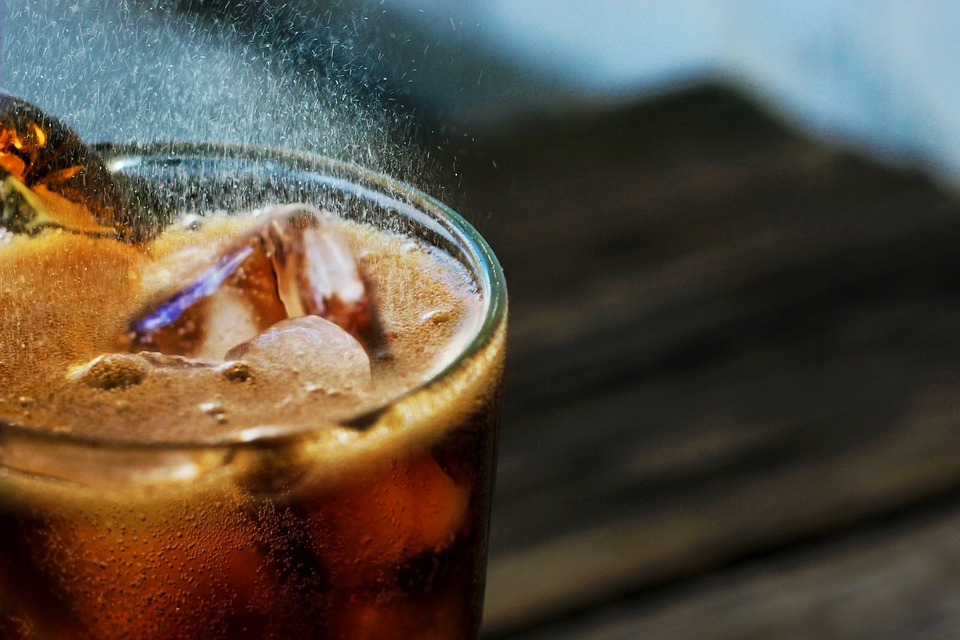Myth: Diet soda is better for you than regular soda.
Truth: Replacing regular soda with diet soda may be more problematic.
It’s safe to say that most of us have accepted that soda and other sugar-laden beverages do not have a place in our diet. Research shows that consistent consumption of food items that spike blood sugar, such as soda, has contributed greatly to the increase in chronic illness and disease. However, the question still remains whether or not diet soda belongs. Although replacing regular soda with its artificially-sweetened counterpart may seem like a step in the right direction, there is evidence that says otherwise.
“Studies have shown that the more diet soda you consume, the more likely you are to be overweight or obese and to develop metabolic syndrome; sugar-free soda, it turns out, has a greater impact on these conditions than any other dietary factor” (1)
Non-nutritive sweeteners, those that taste sweet but don’t provide calories, include acesulfame, potassium, aspartame, neotame, sucralose, and even stevia. Our bodies are not able to metabolize (break-down) these sugars, therefore they have the potential to alter appetite, hormones, and glucose metabolism leading to an increase in chronic conditions like diabetes and metabolic syndrome. In some cases, the consumption of these artificial sweeteners can still cause a release of insulin in the same way glucose does due to the signals sent from the brain to the pancreas upon tasting something sweet. This is problematic because a surplus of insulin without glucose to shuttle into cells leads to inflammation and increased appetite.
Sugar alcohols, including sorbitol, mannitol, xylitol, and erythritol, have less of an impact on blood glucose levels and are less sweet than naturally-occurring sugars. However, consumption of sugar alcohols can lead to gastrointestinal symptoms such as diarrhea, nausea, bloating, gas, and watery stool. This is because sugar alcohols are incompletely absorbed in the intestine and fermentable, meaning that they feed gut bacteria. Lastly, the sugar alcohols xylitol and mannitol directly open tight junctions of the cells that line the digestive tract, increasing intestinal permeability and leading to a leaky gut.
As you can see, there really is no place for artificial sweeteners, including those in diet soda, in your diet. And sometimes, consuming sugar-substitutes is more harmful than consuming sugar itself. However, reducing your soda habit will likely be harder than simply throwing away any pre-existing paraphernalia and avoiding temptation when grocery shopping. Like changing any habit, the surest way to success is by taking small, manageable steps in the direction of your goal. Try incorporating some of the suggestions below to reduce your sugar intake rather than searching for an artificially-sweetened alternative.
- Make your favorite recipes with less sugar than they call for and gradually reduce the amount until optimal taste for the least amount of added sugar is achieved.
- Swap refined sugars for unrefined alternatives like raw honey, blackstrap molasses, and real maple syrup.
- Replace instant oatmeal and sugar-laden cold cereals with plain full-flake or steel cut oats.
- Opt for plain yogurt and top it with fresh berries or a drizzle of honey for nutrient-dense sweetness.
- Opt for whole fruit over fruit juice whenever possible to obtain more fiber and less sugar to optimize blood sugar balance.
- Opt for water naturally flavored with lemon or lime over sugar-sweetened beverages like juice and soda.
- When selecting a food item, whether it be Greek yogurt or dill pickles, read the nutritional label and ingredients list and aim for the product lowest in added sugar.
References:
BALLANTYNE, S., Dr. (2017). PALEO PRINCIPLES. Place of publication not identified: TUTTLE Publishing.

